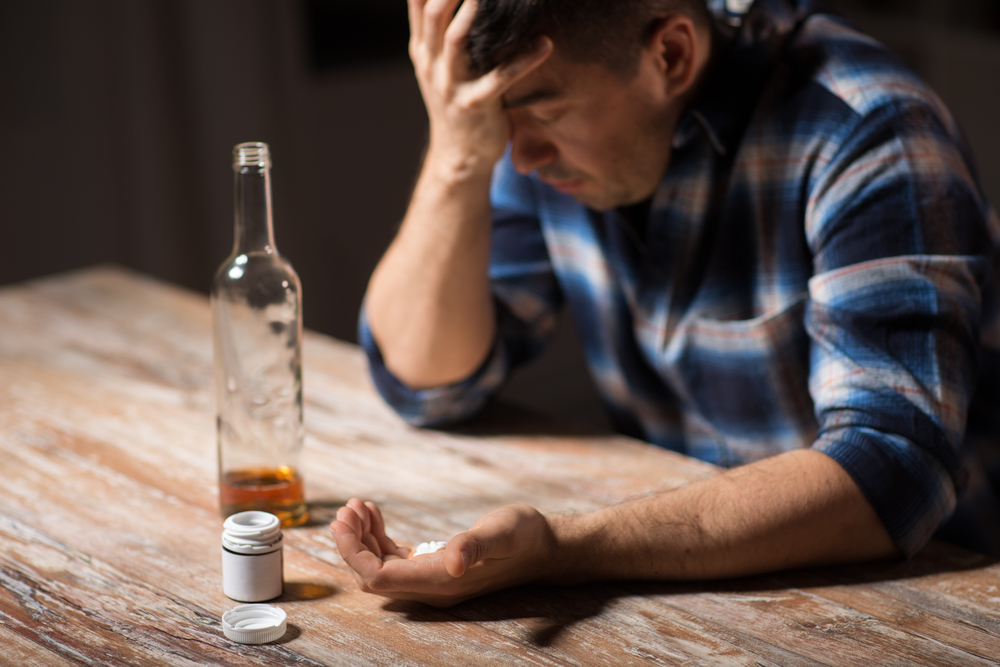Anxiety disorders and alcohol use disorders are commonly co-occurring. Recovery from dual diagnosis issues of anxiety and alcohol can be challenging. Bustle writes that “Alcohol abuse is particularly strong in people with social anxiety disorder, who find social interactions excruciating and difficult to navigate. A study from the National Institute of Health found that up to 20 percent of people who have social anxiety disorder also meet the criteria for alcoholism.”
 Self-Medication Leads To Reliance On External Sources
Self-Medication Leads To Reliance On External Sources
Anxiety is a mental health condition which requires recovery the same way depression, alcoholism, sex addiction, or any other issue does. Recovery includes a healthy balance of mind, body, and spirit. A most important part of recovery is learning not to rely on outside sources for coping. Anxiety is something which lives internally. Trying to find external sources to fix an internal problem tends to prove more problematic than searching within. Many clients recovering from anxiety and alcohol issues find great relief in the safe use of prescription medications. However, medication, in any form, is only part of the equation. Anxiety can be created as a coping mechanism in itself, rooted in significant events, biological and social factors. Recovery emphasizes spiritual balance for healing. When someone with anxiety turns to alcohol to fulfill their needs, the ignore the potential for discovering the power of a Higher Power within. Doing ‘the work’ internally means relying on a higher power to continue providing guidance and strength.
Alcohol Causes More Anxiety
Withdrawal from alcohol causes anxiety. As toxins are removed from the body and the brain stresses to create enough symptoms of cravings, anxiety is a common side effect. Some who may not be aware that their use of alcohol as a coping mechanism has become a problem of chemical dependency find themselves experience anxiety attacks. Problematically, they consider alcohol to be the solution to anxiety, when the problem is actually the other way around. Co-occurring mental health disorders and substance use disorders do not always start with the mental health disorder.
Anxiety and co-occurring alcohol use disorder should be treated with an integrative approach addressing mind, body, and spirit. Cypress Lake Recovery warmly welcomes all those in need of restoration through recovery. Providing detox, residential programs, and other recovery services, we are here to help. For more information, call 1-866-217-2636.

